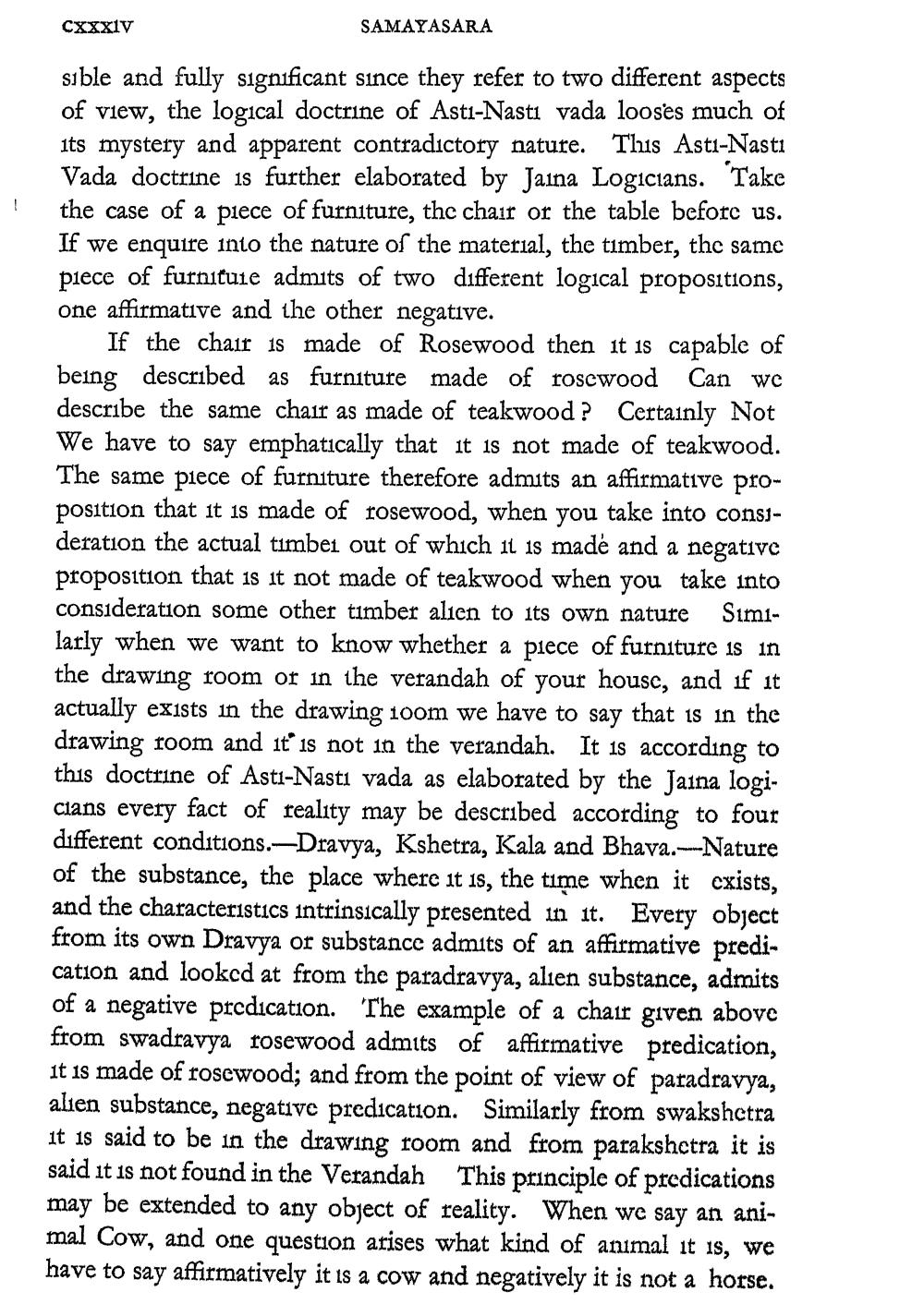________________
SAMAYASARA
CXXXIV sible and fully significant since they refer to two different aspects of view, the logical doctrine of Astı-Nasti vada looses much of its mystery and apparent contradictory nature. This Asti-Nasti Vada doctrine is further elaborated by Jaina Logicians. Take the case of a piece of furniture, the chair or the table before us. If we enquire into the nature of the material, the timber, the same piece of furniture admits of two different logical propositions, one affirmative and the other negative.
If the chair is made of Rosewood then it is capable of being described as furniture made of rosewood Can we describe the same chair as made of teakwood ? Certainly Not We have to say emphatically that it is not made of teakwood. The same piece of furniture therefore admits an affirmative proposition that it is made of rosewood, when you take into consideration the actual timbet out of which it is made and a negative proposition that is it not made of teakwood when you take into consideration some other timber alien to its own nature Similarly when we want to know whether a piece of furniture is in the drawing room or in the verandah of your house, and if it actually exists in the drawing 1oom we have to say that is in the drawing room and it is not in the verandah. It is according to this doctrine of Asti-Nasti vada as elaborated by the Jaina logicians every fact of reality may be described according to four different conditions.—Dravya, Kshetra, Kala and Bhava.---Nature of the substance, the place where it is, the time when it exists, and the characteristics intrinsically presented in it. Every object from its own Dravya or substance admits of an affirmative predication and looked at from the paradravya, alien substance, admits of a negative prcdication. The example of a chair given above from swadravya rosewood admits of affirmative predication, it is made of rosewood; and from the point of view of paradravya, alien substance, negative predication. Similarly from swakshetra it is said to be in the drawing room and from parakshetra it is said it is not found in the Verandah This principle of predications may be extended to any object of reality. When we say an animal Cow, and one question arises what kind of animal it is, we have to say affirmatively it is a cow and negatively it is not a horse.




